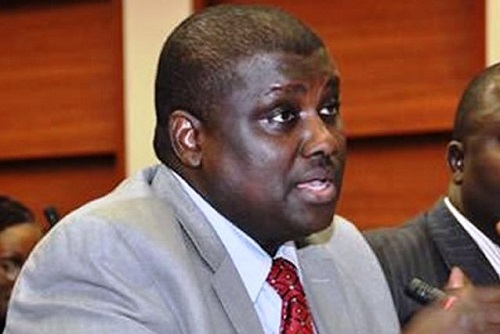This post has already been read 4564 times!
The Economic and Financial Crimes Commission yesterday arraigned former Chairman, defunct Pension Reform Task Team, Abdulrasheed Maina and his son, Faisal, before the Federal High Court, Abuja.
While Maina is being prosecuted by the anti-graft agency on a 12-count charge bordering on allegations of money laundering, operating fictitious accounts and other fraudulent activities using some banks in the country, his son is facing a three-count charge bordering on money laundering and other offences.
The 12-count charge brought against Mr Maina was dated October 16 and filed on October 17.
But he pleaded not guilty as he denied any wrongdoing in respect of the charges levelled against him by the EFCC.
In accordance with the provision of Section 478 of the Administration of Criminal Justice Act 2015, Adeola Adedipe, who appeared for the second defendant (Common Input Property and Investment Limited), a company allegedly owned by Maina, entered a “not guilty plea” for the company.
Shortly after the charges were read to the defendant, the prosecution counsel, Mohammed Abubakar, informed the court that he was ready to call his first witness. Ahmed Raji (SAN), who announced appearance for Maina, interjected by drawing the court’s attention to the defendant’s bail application dated October 22, which he had filed prior to the defendant’s arraignment.
However, the effort of Ahmed Raji to have the court hear Maina’s bail application was opposed by the prosecution counsel for being incompetent. Abubakar argued that by making frantic effort to move the bail application, “the defendants are putting the cart before the horse.”
The EFCC lawyer stressed that the issue of bail application could only arise if there was an adjournment of the matter. Abubakar reminded the court that the hearing notice served on all parties in the case indicated that all should come prepared for trial to begin, since the charge, proof of evidence, list of witnesses etc, had been served on the defendants.
He, however, admitted being served the bail application of the 1st defendant but also confirmed that he has not filed a counter-affidavit.
The prosecution told the court that the fact that he did not file a counter affidavit in opposition to Maina’s bail application did not mean the anti-graft agency had conceded to the application.
The EFCC lawyer said, “anytime the defense counsel filed a competent bail application, we will vehemently oppose it.” When asked by Justice Abang on what he meant by the application for bail being incompetent, Abubakar answered that it was filed before the arraignment of the defendant in court.
Consequently, the court asked Maina’s lawyer, Raji, for his reaction on Section 356(1) of ACJA, which the court raised sumoto, which provides that bail application must be filed after the arraignment.
In his response, Raji said he needed time to react to the question and therefore pleaded for an adjournment.
On the prosecution’s position that he was ready to call his witness, Raji said in line with section 36 of the constitution, the defendant was entitled to time for adequate preparation for his defence.
He said the charge served on the defendant was in four volumes of 500 pages each, and that he has not had time to discuss with the defendant, saying he was only given seven minutes to chat with Maina at the office of the EFCC without privacy.
Having painstakingly listened to the submissions of the prosecution and defence counsels, the court adjourned the case to October 30, for the commencement of trial.
The court also remanded the young Maina in police custody pending the conclusion of investigation over allegation of possession of illegal firearms.
His own case was adjourned until November 6 for the commencement of trial.



